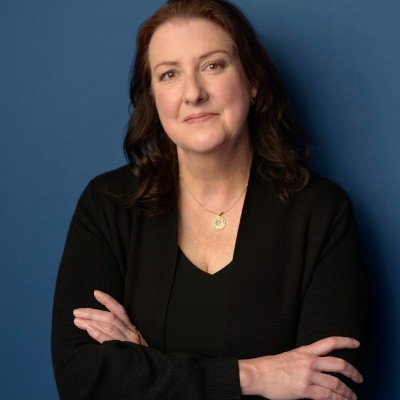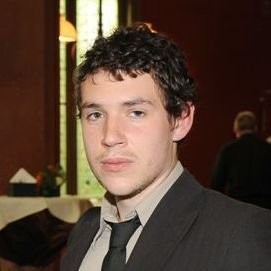 Kathrine Richardson is an urban and economic geographer and a Professor in the Department of Urban and Regional Planning at San José State University. Her research specializes in the mobility and retention of the internationally highly skilled, and how highly skilled foreigner professionals may influence the growth and change of urban systems. Specifically, Professor Richardson’s work focuses on transnational migrations of highly-skilled immigrants between the Americas and Asia-Pacific. Her book, Knowledge Borders: Temporary Labor Mobility and the Canada-US Border Region, examines the movement of high technology and biotechnology professionals across the Canada–U.S. border under Chapter 16 of NAFTA (now USMCA) in a post 9/11 environment within the binational region of Cascadia, which includes British Columbia, Washington state, Oregon, and portions of Northern California. In addition to academic publications, Dr. Richardson conducted an important study on the mobility and settlement of highly-skilled North Americans across the Canada–U.S. border under NAFTA (now USMCA) for the executive branch of the Government of Canada.
Kathrine Richardson is an urban and economic geographer and a Professor in the Department of Urban and Regional Planning at San José State University. Her research specializes in the mobility and retention of the internationally highly skilled, and how highly skilled foreigner professionals may influence the growth and change of urban systems. Specifically, Professor Richardson’s work focuses on transnational migrations of highly-skilled immigrants between the Americas and Asia-Pacific. Her book, Knowledge Borders: Temporary Labor Mobility and the Canada-US Border Region, examines the movement of high technology and biotechnology professionals across the Canada–U.S. border under Chapter 16 of NAFTA (now USMCA) in a post 9/11 environment within the binational region of Cascadia, which includes British Columbia, Washington state, Oregon, and portions of Northern California. In addition to academic publications, Dr. Richardson conducted an important study on the mobility and settlement of highly-skilled North Americans across the Canada–U.S. border under NAFTA (now USMCA) for the executive branch of the Government of Canada.

 Ben Rohrbaugh is a fellow at the Strauss Center for International Security and Law at the University of Texas. He is a Co-founder of the Tanager Group, a humanitarian response company that provides services to refugees and asylum seekers. Ben teaches at the Center for Homeland Defense and Security at the Naval Postgraduate School and is the author of More or Less Afraid of Nearly Everything, published by the University of Michigan in 2020. Ben worked on the Biden-Harris Presidential Transition Team in 2020/2021, and was previously a Senior Advisor in the U.S. Department of Homeland Security Office of Policy. From 2014 to 2016, he served as the Director for Enforcement and Border Security at the National Security Council in the White House, where he was responsible for border management with Mexico and Canada and global supply chain security. He previously worked as a Counselor to the Commissioner of U.S. Customs and Border Protection.
Ben Rohrbaugh is a fellow at the Strauss Center for International Security and Law at the University of Texas. He is a Co-founder of the Tanager Group, a humanitarian response company that provides services to refugees and asylum seekers. Ben teaches at the Center for Homeland Defense and Security at the Naval Postgraduate School and is the author of More or Less Afraid of Nearly Everything, published by the University of Michigan in 2020. Ben worked on the Biden-Harris Presidential Transition Team in 2020/2021, and was previously a Senior Advisor in the U.S. Department of Homeland Security Office of Policy. From 2014 to 2016, he served as the Director for Enforcement and Border Security at the National Security Council in the White House, where he was responsible for border management with Mexico and Canada and global supply chain security. He previously worked as a Counselor to the Commissioner of U.S. Customs and Border Protection. Hubert Duchesneau is a Research Fellow with BIG_Lab and a Customs Modernization Expert with the
Hubert Duchesneau is a Research Fellow with BIG_Lab and a Customs Modernization Expert with the  Geoffrey Hale is Professor Emeritus in the Department of Political Science at the
Geoffrey Hale is Professor Emeritus in the Department of Political Science at the  Jenia Peteva is a Policy Officer in Revenue Administration at the
Jenia Peteva is a Policy Officer in Revenue Administration at the  Cameron Walter is the current Head of the Heritage Crime Task Force of the
Cameron Walter is the current Head of the Heritage Crime Task Force of the  Kathrine Richardson is an urban and economic geographer and a Professor in the Department of Urban and Regional Planning at
Kathrine Richardson is an urban and economic geographer and a Professor in the Department of Urban and Regional Planning at  With more than 24 years’ experience in customs and trade policy and law enforcement, Janine Harker brings an integrated perspective to the challenges facing traders and governments involved in the cross-border movement of goods. She currently serves as the President of the Canadian Society of Customs Brokers and advocates for consistent and transparent regulations and processes to govern the import and export of goods. Janine has represented the Government of Canada on customs, intelligence and national security issues as both a diplomat and on committees at the World Customs Organization, the Missile Technology Control Regime, the Wassenaar Arrangement, and other international organizations.
With more than 24 years’ experience in customs and trade policy and law enforcement, Janine Harker brings an integrated perspective to the challenges facing traders and governments involved in the cross-border movement of goods. She currently serves as the President of the Canadian Society of Customs Brokers and advocates for consistent and transparent regulations and processes to govern the import and export of goods. Janine has represented the Government of Canada on customs, intelligence and national security issues as both a diplomat and on committees at the World Customs Organization, the Missile Technology Control Regime, the Wassenaar Arrangement, and other international organizations. Ferdinand Desmazieres is a World Customs Organisation Expert, assistant to the Deputy Secretary General of the World Customs Organisation ( (Mr. Ricardo Treviño Chapa), Deputy Secretary General, World Customs Organization).
Ferdinand Desmazieres is a World Customs Organisation Expert, assistant to the Deputy Secretary General of the World Customs Organisation ( (Mr. Ricardo Treviño Chapa), Deputy Secretary General, World Customs Organization).